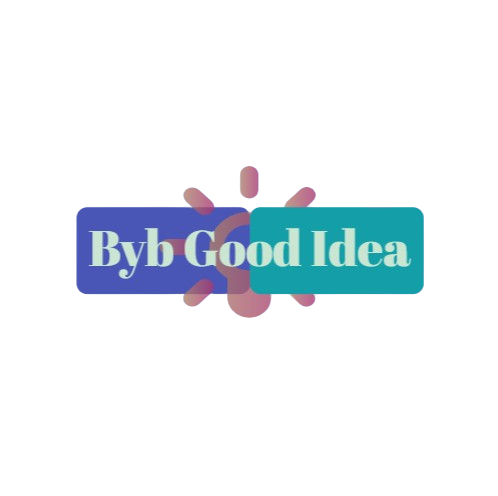- Your Future Starts Now: Embracing the Power of Planning
Let’s face it—career planning might sound like a far-off goal or something you’ll “figure out later.” But here’s the truth: the earlier you start shaping your path, the more control you’ll have over your future. That’s where the career development plan assignment comes in. It’s not just an academic task; it’s a personal blueprint for your goals, growth, and greatness.
A career development plan helps you assess where you are now, where you want to go, and how you’ll get there. Taking it seriously could mean the difference between drifting through jobs and thriving in a meaningful career. This assignment gives you the gift of clarity—and that’s priceless.
- Cracking the Code: What is a Career Development Plan Assignment?
At its core, a career development plan assignment is a structured document that outlines your professional aspirations and the steps needed to achieve them. It’s often assigned in college or professional development courses to help you articulate your goals and make realistic plans to reach them.
Typically, this assignment includes self-assessment, goal-setting, identifying resources, and creating timelines. You’re not just writing down dreams—you’re mapping out a strategy to turn those dreams into reality. Once you understand the purpose, the process becomes not only doable but also exciting.
- Getting Personal: Why Self-Reflection is the Starting Line
Before you leap into action, you need to understand who you are. Self-reflection is the heartbeat of any great career plan. This means asking the hard questions: What are your values? What skills do you have? What makes you excited to get out of bed in the morning?
Spend time digging into your strengths, weaknesses, interests, and personality. Tools like the SWOT analysis (Strengths, Weaknesses, Opportunities, Threats) or personality assessments like MBTI can give you valuable insights. The more honest you are, the stronger your plan will be. Remember, this is your story—write it truthfully.
Read for : athe assignment help
- Dream Big, Plan Smart: Setting Career Goals that Inspire
Now that you’ve explored your inner world, it’s time to set some goals. But not just any goals—your goals need to be SMART: Specific, Measurable, Achievable, Relevant, and Time-bound. This framework keeps you grounded and focused while allowing room for ambition.
Start by visualizing where you want to be in five or ten years. Then, break that vision into smaller steps. Whether it’s pursuing a particular role, acquiring new skills, or building a network, your goals should light a fire in you. Passion plus planning equals progress.
- Charting the Course: Building a Strategic Action Plan
With your goals in hand, it’s time to design the roadmap. This section of your assignment should lay out the concrete actions you’ll take to move forward. Think of it like a GPS—you need clear directions to reach your destination.
List out courses to take, internships to pursue, certifications to earn, and professionals to connect with. Include timelines and checkpoints to keep yourself accountable. By building a detailed action plan, you turn vague intentions into bold commitments.
- Resources and Support: You Don’t Have to Go It Alone
Career development is not a solo journey. Your assignment should identify the tools, people, and institutions that can support your path. This includes mentors, career counselors, training programs, financial aid, and even online platforms like LinkedIn Learning.
Be proactive in seeking out opportunities. Sometimes, all it takes is a conversation or an email to open doors. When you show initiative, others are more likely to invest in your journey. Remember: champions are made, not born—and they never walk alone.
- Facing the Fear: How to Overcome Challenges and Setbacks
Let’s be real—no career path is free of obstacles. That’s why your plan should also include a section on anticipating and handling challenges. Whether it’s financial barriers, time constraints, or self-doubt, being prepared will help you stay resilient.
Create contingency plans and mindset strategies. For example, if you don’t get the internship you want, what’s your Plan B? How will you stay motivated when things get tough? Reflecting on these questions in your assignment shows maturity—and sets you up for real-world success.
- Writing with Purpose: Structuring a Standout Assignment
Now that your content is strong, it’s time to package it professionally. Start with a clear introduction that states the purpose of the assignment. Each section should be organized logically, using subheadings, bullet points, and paragraphs for clarity.
Use a confident, yet conversational tone—this is about you, after all. Avoid vague statements like “I want to be successful” and replace them with specifics like “I aim to become a certified HR specialist within the next three years.” Wrap up with a conclusion that reflects your commitment and optimism. Let your ambition shine.
- Beyond the Grade: Using Your Plan as a Life Compass
Here’s the best part: your career development plan doesn’t end when you hit submit. This document can be a living guide you return to as your journey evolves. Update it regularly, refine your goals, and celebrate milestones along the way.
Treat your plan like a journal for your dreams—a place where you can realign your actions with your values. As life changes, so will your career direction, and that’s okay. What matters most is that you keep moving forward with purpose and passion.
Final Words of Encouragement
Completing a career development plan assignment may seem like just another box to tick, but in truth, it’s a profound opportunity. You’re not just writing about your future—you’re creating it. So take your time, dream boldly, plan wisely, and believe in your potential. The world needs what only you can offer.


